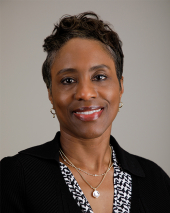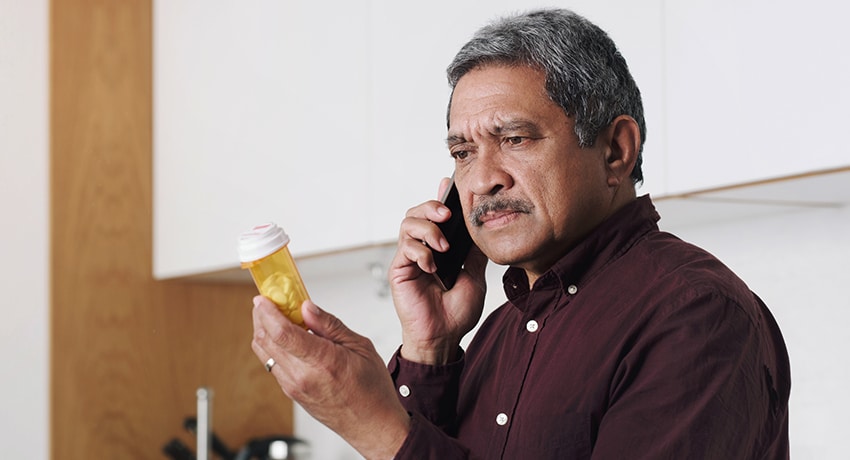An estimated 107,622 people died of overdose in the U.S. during 2021, according to the Centers for Disease Control and Prevention National Center for Health Statistics. This was an increase of nearly 15% from 2020.
Synthetic opioids (fentanyl) dominated the cause of death by 50%, followed by psychostimulants (meth) at 23%, cocaine at 17%, and natural/semi-synthetic (prescription) drugs at 10%.
With synthetic opioids and other prescription drugs accounting for 60% percent of overdoses, it is necessary to educate people about the dangers of medications to reverse this trend.

“Most overdoses are accidental. In too many cases, the users didn’t fully understand the importance of taking their medication correctly, particularly painkillers and other opioids,” said Carman H. Whiting, MD, family medicine specialist with UT Physicians Multispecialty — Sienna. “Anyone can overdose from prescription and even over-the-counter medications if not taken correctly.”
To prevent an accidental overdose, Whiting offers six key lessons on medication.
Use as directed
Whether it comes from a pharmacist or shelf, follow the directions on the bottle or package before taking any medication or giving it to someone else. Read closely to understand how much to take for your age and weight and how often to take it. Be fully aware of the side effects.
“Just because your doctor prescribes it to you doesn’t mean you don’t have to worry about accidental overdosing. Medications have far-reaching effects, and we really must use them appropriately. Take them only as directed,” Whiting said.
Follow instructions for over-the-counter medications as carefully as prescribed ones.
“Over-the-counter medications are still drugs. Just because you can purchase them legally and easily doesn’t mean they can’t harm you, especially when you take them along with prescribed medications at the same time,” she said.
Consult your doctor
Contact your primary care physician before buying over-the-counter medications when in doubt. By doing so, you can be assured that you are purchasing the right relief for your symptoms and receiving expert advice.
“We tend to run to the store or pharmacy when we’re not feeling well, but you should always consider if your prescription medication may interact with it,” Whiting said. “Also, some non-prescription medications, like aspirin, aren’t suited for children. Some medications, like pain killers and sleeping pills, shouldn’t be taken together. Other medications can also be habit-forming,” Whiting said.
Children, in particular, can easily overdose from non-prescription medications.
“It doesn’t take a lot of medication to overdose a small child,” she said. “Talk to your child’s pediatrician or family doctor, and be sure to give your child the appropriate dose.”
Don’t add alcohol
Avoid drinking alcohol while taking any medication. Alcohol is a drug that can compound the potency of any medication, and the mixture can become toxic.
“It’s never a good idea to add alcohol on top of medication, especially if it’s for pain. The effects of opioids with alcohol can be lethal. Alcohol combined with other drugs is a common way people accidentally overdose,” Whiting said. “If you take prescribed medication, first ask your doctor how much you can safely drink on occasion.”
Even if medications are not an issue, do not engage in binge drinking. It can lead to alcohol poisoning and/or potentially fatal accidents from inebriation.
“For any adult, I recommend having only one or two drinks and stopping there,” she said.
Don’t take or share
Do not accept any medication offered to you — whether it is prescription or non-prescription, whether it comes from a relative or friend.
“You definitely shouldn’t take anything off the street because you don’t know what you’re getting, but you shouldn’t take someone else’s medication, either. That medication was not prescribed for you, and thus, you have no way of knowing the effects it will have on your body,” said Whiting, assistant professor with McGovern Medical School at UTHealth Houston.
Talk with your adolescent about medications and illegal drugs to help them make smarter choices.
“Teenagers may overdose more easily than adults. There are too many instances of death among adolescents because they took a pill that was not prescribed for them,” she said. “As a general rule, don’t take pills from others, and don’t share pills with others.”
Be proactive
For anyone on daily medication, do not take a new drug before consulting with your primary care physician.
“Some people, particularly seniors, must be more cautious because of polypharmacy (the use of five or more daily medications). For example, a patient might want to take an antihistamine for his allergies, but it can increase sedation and the risk for injury,” Whiting said. “Ask your doctor for the safest remedy to avoid dangerous side effects or overdose.”
Mention all your prescription and non-prescription medications each time you speak with your doctor.
“Your doctor should reconcile your medications with each encounter so you only take what you need and nothing more,” she said, “If you’re not sure, be proactive. Tell your doctor about all your medications and ask if you still need them.”
Get help
For anyone dependent on medications, ask your primary care physician for help. The doctor can advise treatment and refer you to private or community programs. The conversation will remain confidential.
“Communicate with your doctor if you’re having a problem. People often feel ashamed, so they don’t say anything. Then something terrible happens,” Whiting said. “Reach out. We’re here to help with all your health care needs.”
Remember, most people do not become addicted to medications intentionally.
“Often times a patient just wants to sleep or is in a lot of pain, and they need something to help them. For a number of reasons, something that was supposed to be temporary became habit-forming for them,” she said. “Get help now to prevent an overdose later.”
Help prevent overdose. Share this information!



